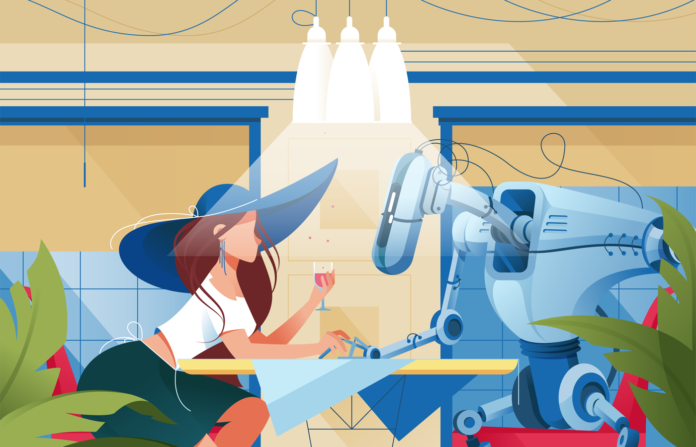Artificial intelligence is taking over not only routine jobs and repetitive tasks but also romantic relationships, with one-quarter of American young adults believing that AI can replace real-life romance with other humans. According to an Institute for Family Studies (IFS)/YouGov survey, Generation Z and Millennials interact more often with generative AI. This exposure to technology might also allow computer-generated content to infiltrate the human psyche, making the demographic more likely to turn to AI for romance, companionship, and friendship.
Survey results show that one in four young adults—28 percent of men and 22 percent of women—say AI can very likely replace traditional human romantic partners. Of those, 10 percent are open to having an AI partner, most of whom (about 7 percent) are single, unmarried, or not cohabiting. One percent say they already have an AI friend or are in a relationship with a computer program.
“That one percent of American young adults in the survey report having an AI friend is significant because it marks the beginning of profound change in how we relate to one another, from a world where humans connect and form romantic bonds with each other to a world in which humans engage romantically with machines,” wrote IFS’s Director of Research Wendy Wang and Executive Director Michael Toscano.
An IFS study suggests that the prevalence of pornography amplifies the openness to digitally mediated intimacy. One in 10 young American adults watch porn at least once a day. This demographic of heavy porn users is the most open to having an AI girlfriend or AI boyfriend, with about one-third, or 35 percent, saying AI bots can best humans in romance. AI-powered intimate partners have been on the market for years. For example, Replika offers companionship and emotional support and is heavy on stories.
However, 57 percent of the surveyed adults under age 40 say they are opposed to or uncomfortable with the ethics of AI-simulated human interaction to provide intimacy and emotional support. A 71 percent majority of single young adults—most college-educated or in a higher income bracket—said they were not comfortable with an AI partner. A college education remains a big deterrent to bots replacing humans for intimacy partners.
See our list of the top artificial intelligence companies redefining the industry and pushing the boundaries of technology.
